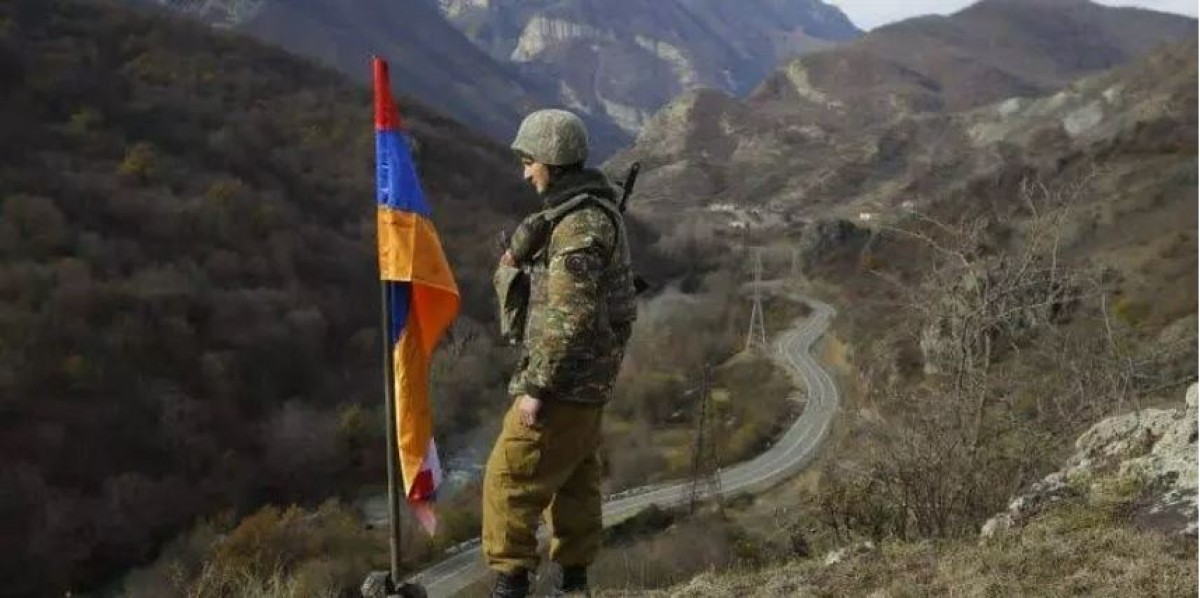 229
229
The Zangezur Corridor: A Flashpoint for Conflict or a Bridge to Cooperation?
The Zangezur Corridor: A Flashpoint for Conflict or a Bridge to Cooperation?
By: N. Daneshvar
In recent years, the Organization of Turkic States or Governments (OTS), also known as the Turkic Council, has been established, comprising five Turkic-speaking countries, along with Hungary and Turkmenistan as observers. During this period, the founders have been persistently working to expand and strengthen the organization. Within the framework of the planned operations of the Organization of Turkic States (OTS), the agenda has focused on fostering economic cooperation and convergence. To this end, the Economic Forum of Turkic Countries (EFTS) was established in Baku earlier this year with the aim of creating platforms for multilateral interactions.
The ostensible objectives of this forum, which brought together numerous participants from various countries at significant cost, were to explore investment opportunities, attract foreign investors and companies, and strengthen the ties between Turkic-speaking nations. This event, organized by seemingly private but inherently governmental Azeri and Turkish associations, along with their supporters and some Turkish economic activists, can be viewed as a means to compete with the Eurasian Economic Union (EAEU) and other similar regional formations.
In the post-Soviet countries, the Central Asian region, and even Eastern Europe, several prominent alliances and assemblies, such as the Eurasian Economic Union, the Commonwealth of Independent States, and the Shanghai Cooperation Organization, have gained prominence in terms of economic and security spheres. The mere existence and development of these structures, despite their varying degrees of engagement, will inevitably lead to competition, and in the medium term, the coexistence of these two structures will most likely depend on the dynamics of the relationships between Russia, Iran, Turkey, and even China.
However, the underlying question is what motivates the design and organization of the Turkish Economic Cooperation Council among its members, particularly Turkey, the architect of the Turkic Council project. It is noteworthy that Turkey considers itself the self-proclaimed elder brother among other Turkic nations and tends to impose this view on the region's Turkic-speaking countries. To this end, Turkey employs the principle of "soft power" and fosters cooperation in various economic, cultural, technological, and educational domains.
During a meeting in Turkey, Recep Tayyip Erdogan, while approving the vision document of the Organization of Turkish Governments, stated that these collaborations would not be limited to the borders of the member states but would crystallize the spread of peace, comfort, and prosperity throughout the region. At the same summit, Azerbaijani President Ilham Aliyev interpreted Erdogan's remarks by stating that the Zangezur Corridor would connect the Turkic worlds to each other and to Europe. The outcome of that meeting in Istanbul was the attempt to create the Zangezur Corridor by Baku and Ankara through military action, which we are currently witnessing the comprehensive efforts of the governments of Baku and Ankara to implement.
The origins of the Organization of Turkic States can be traced back to the ideology of Pan-Turanism, which was first proposed by a Hungarian named Arminius Vambery in the 1860s. Vambery, based on the linguistic similarities and Ural-Altaic roots of the Turkic languages, theorized the concept of pan-Turkism, advocating for the unification of all lands inhabited by speakers of Altaic-based languages. Ironically, it was later discovered that Vambery was a full-fledged spy and servant of the British court, and his theory was primarily aimed at countering the growing influence of Russia in Central Asia and safeguarding British positions in the Indian subcontinent.
While Vambery's ideas formed the foundation for the emergence of the pan-Turkic ideology, and he attempted to lend it a scientific and linguistic veneer, the current member countries of the Turkic Council share less common history and geography. The geographical barriers between these nations also call into question the basis of their commonality and unity. Contrary to the organization's title, which suggests a shared language, the leaders of these countries often have to communicate through translators, a factor that will undoubtedly make the creation of an economic union more challenging and undermine the goals set forth in the Economic Forum of Turkic Countries.
It appears that this assembly is primarily a conduit to finance imaginary corridors and ambitious projects, and its significance may diminish for other members as the true nature of its dimensions becomes clearer.
In the context of the "Turan question," it is noteworthy that while Turkey is often credited with its promotion, the role of Ankara's partners in the Organization of Turkic States, namely the Republic of Azerbaijan and Kazakhstan, is the most prominent in the public sphere. These two countries, together with Turkey, are poised to benefit the most from the advantages of this cooperation.
However, the formation, direction, and leadership of such assemblies without the participation of all regional members and actors will undoubtedly lead to a geographical and economic deadlock. It has been repeatedly proven in recent years, with definitive and documented reasons, that the Zangezur Corridor and its associated issues are part of a conspiracy by NATO and the West to gain greater control over the resources and unique geography of this region.
In conclusion, the Zangezur Corridor must be unequivocally condemned as a dangerous and destabilizing initiative that threatens the peace, security, and sovereignty of the region. The international community must stand firm in its rejection of this imperialist agenda and work tirelessly to promote genuine cooperation, mutual understanding, and respect among all the diverse peoples and nations of the region.
 229
229
Comment
Post a comment for this article